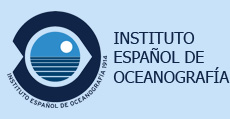- Título: Evaluación de Recursos Demersales por Métodos Directos en el Área ICES
- Acrónimo: ERDEM4
- Investigador principal: Velasco Guevara, Francisco
- Fecha inicio: 01/01/2015
- Fecha final: 31/12/2017
- Resumen:
El proyecto ERDEM está dirigido a la evaluación por métodos directos (mediante campañas estandarizadas de arrastre de fondo) del estado de las poblaciones explotadas en la costa norte de la Península Ibérica (divisiones ICES VIIIc y IXaN) y en el banco de Porcupine (divisiones ICES VIIb-c y VIIk). Para ello se realizarán dos campañas anuales siguiendo los protocolos del IBTS WG del ICES. La información recogida se utilizará para:
ÍNDICES DE ABUNDANCIA DE LAS ESPECIES EXPLOTADAS
Estimación de la abundancia y distribución, por clase de edad en algunos casos, de las principales especies explotadas por la flota española en las áreas citadas, destacando la merluza, los gallos, los rapes, la cigala, la bacaladilla y el jurel.
ESTIMACIÓN DE LA FUERZA DE LOS RECLUTAMIENTOS ANUALES
Otro punto fundamental es la estimación de la fuerza y distribución de los reclutamientos de merluza y del resto de las especies de interés comercial mencionadas en las dos áreas abarcadas. Además de la estimación de la fuerza de los reclutamientos, se tratará de establecer sus relaciones con los factores ambientales. Este aspecto está muy desarrollado en el caso de la merluza y los gallos en el Cantábrico y Galicia, sin embargo está menos estudiado en la zona de Porcupine, en que la serie histórica disponible es mucho menor, siendo también menor su importancia como área de reclutamiento.
Otros aspectos que se estudiarán son:
- ESTRUCTURACIÓN Y DISTRIBUCIÓN DE LAS COMUNIDADES
- RELACIONES TRÓFICAS DE PECES DEMERSALES
- CARACTERIZACIÓN DEL IMPACTO DE LOS DESCARTES PESQUEROS EN LAS COMUNIDADES DEMERSALES COMBINANDO DATOS DE OBSERVADORES EN BUQUES COMERCIALES Y DATOS DE CAMPAÑAS CIENTÍFICAS
- CARACTERIZACIÓN DE LAS POBLACIONES DE ELASMOBRANQUIOS, CEFALÓPODOS Y CRUSTÁCEOS DEMERSALES
- ESTANDARIZACIÓN Y CONTROL DE CALIDAD DE LAS CAMPAÑAS
- INTEGRACIÓN DE LAS BASES DE DATOS DE CAMPAÑAS EN EL SIRENO y DATRAS(1)
- INTEGRACION DE DATOS DE HIDROGRAFÍA EN EL BANCO DE DATOS DEL IEO
- Abstract:
Project ERDEM is aimed at the assessment of the exploited resources on the northern Spanish Shelf of the Iberian Peninsula (ICES Divisions VIIIc and IX a North), and on the Porcupine Bank (West of Ireland, ICES Divisions (VIIb-c and VIIk). Besides obtaining the abundance indices of the commercial species in the areas studied, the ecosystem structure and the relations with the rest of the species captured in the demersal/benthic assemblages will be studied. The assessments will be carried out based on two annual bottom trawl surveys following the ICES IBTS protocols (ICES, 2010). The data and the information collected will be used to:
- Estimate abundance indices of the exploited species in the areas, and the annual recruitment strength of the main commercial species (hake, megrims, anglers, Nephrops).
- Study and describe the structure and distribution of the demersal and benthic communities in the studied areas, with special attention to the fish, crustaceans and cephalopods.
- Characterization of the demersal elasmobranches on the Spanish and Porcupine shelf, with special attention to bathyal species.
- On the northern Spanish shelf trophic relationships of the fish assemblages is also studied through stomach content analyses carried out on board in every survey.
- Study of the oceanographic drivers on the populations studied based on hydrographic CTD casts carried out during the surveys.
- Sediments collected with box-corers and sediment collectors will be used to determine the effect of ground type on species distribution.
Other lines that will be addressed within the project are the study of the effect of the implementation of the discard ban on the demersal communities, combining data from observers on commercial vessels and the data obtained on the surveys.
The standardization of the surveys and the quality control are enforced during all the surveys and the quality checks carried out on the data-bases that provide the data to the assessment working groups and to DATRAS (http://datras.ices.dk/Home/Default.aspx) DataBase.

